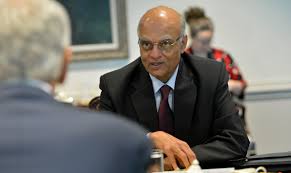
In the aftermath of the 26/11 Mumbai attacks in 2008, the then Foreign Secretary Shivshankar Menon, who went on to become the National Security Advisor to the UPA government, had advocated for immediate military action at terror camps across the Line of Control in Pakistan.
The action, according to Menon, was intended for "either against the Lashkar-e-Taiba in Muridke in Pakistan's Punjab province or their camps in Pakistan-occupied Kashmir, or against the Inter-Services Intelligence, which was clearly complicit" because it "would have been emotionally satisfying."
Menon considered military retaliation to have "gone a long way in erasing the shame of the incompetence that India's police and security agencies displayed in the glare of the world's television lights for full three days."
However, the decision not to retaliate militarily and to concentrate on diplomatic, covert, and other means was the right one for that time and place, Menon wrote in his book Choices: Inside the making of India's Foreign Policy.
"The simple answer to why India did not immediately attack Pakistan is that after examining the options at the highest levels of government, the decision-makers concluded that more was to be gained from not attacking Pakistan than from attacking it," he added.
Menon also argues against the simplistic approach where one military action is supposed to end the conflict. He warns that "India's immediate political objective must recognise that this is a long conflict that cannot be solved — that is protracted and intractable. This is an idea that most Indians are reluctant to accept and some find intolerable".
Reflecting on the Israel model, Menon points out that the "often quoted or misquoted, in support of military action as the answer" in India "is limited in time and effect".
Israeli tactics of short response against non-state actors that do not target their state sponsors achieve limited goals. Explaining this, he says that the "use of deterrence in asymmetric warfare is questionable unless the non-state actors take over territory and act as governments".
Menon also regrets the failure of efforts made between Manmohan Singh and Pervez Musharraf during 2004-2007 that were hampered in 2007 due to politics in Pakistan. Menon feels that the joint statement between Singh and Yousaf Raza Gillani in July 2009 at Sharm El-Sheikh "was another opportunity squandered in the long list of missed half chances in India-Pakistan relations".
According to Menon, India has not really been affected by radical groups like the Islamic State despite attempts by Pakistan "This does not mean that there will not be deluded individuals or those incidents will not take place. But it does mean that social cement that keeps India together is strong and significant and must be strengthened by fighting all communally divisive forces," he writes.

















